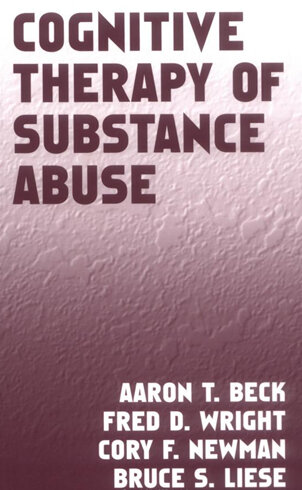 Image 1 of
Image 1 of


Cognitive Therapy of Substance Abuse
Cognitive therapy offers a well-documented and cost-effective psychosocial treatment model for working with substance abuse disorders.
Comprehensive and accessible, this volume clearly details the cognitive model of substance abuse, the specifics of case formulation, management of the therapeutic relationship, and the structure of the therapy sessions.
It discusses how to educate patients in the treatment model and procedures and manage their cravings and urges for drugs and alcohol.
Specific cognitive and behavioural strategies and techniques are described, as are methods for understanding and working with patients who present concomitant problems of depression, anxiety, low frustration tolerance, anger, and personality disorders.
Also addressed are such significant issues as crisis management and relapse prevention.
Cognitive therapy offers a well-documented and cost-effective psychosocial treatment model for working with substance abuse disorders.
Comprehensive and accessible, this volume clearly details the cognitive model of substance abuse, the specifics of case formulation, management of the therapeutic relationship, and the structure of the therapy sessions.
It discusses how to educate patients in the treatment model and procedures and manage their cravings and urges for drugs and alcohol.
Specific cognitive and behavioural strategies and techniques are described, as are methods for understanding and working with patients who present concomitant problems of depression, anxiety, low frustration tolerance, anger, and personality disorders.
Also addressed are such significant issues as crisis management and relapse prevention.
Cognitive therapy offers a well-documented and cost-effective psychosocial treatment model for working with substance abuse disorders.
Comprehensive and accessible, this volume clearly details the cognitive model of substance abuse, the specifics of case formulation, management of the therapeutic relationship, and the structure of the therapy sessions.
It discusses how to educate patients in the treatment model and procedures and manage their cravings and urges for drugs and alcohol.
Specific cognitive and behavioural strategies and techniques are described, as are methods for understanding and working with patients who present concomitant problems of depression, anxiety, low frustration tolerance, anger, and personality disorders.
Also addressed are such significant issues as crisis management and relapse prevention.
